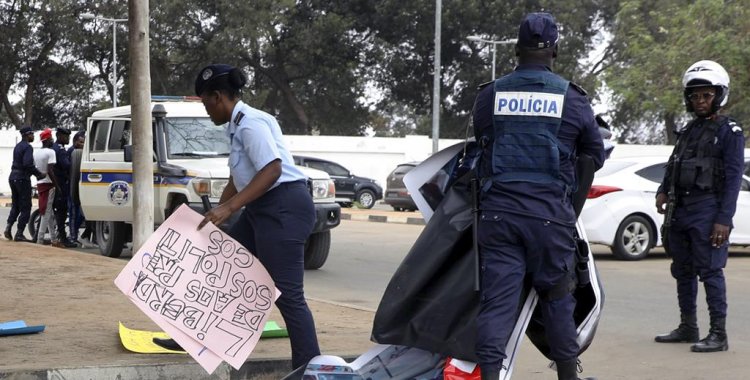In a statement, the Non-Governmental Organization (NGO) presented two laws that it considers “repressive”, namely the bill on Crimes of Vandalism of Public Property and Services, which the National Assembly of Angola approved on July 18, which provides for prison sentences of up to 25 years for people who participate in protests that result in vandalism and disruption of services.
It also pointed to the promulgation by the National Assembly, on August 7, of the National Security Law, which, it claims, allows excessive government control over the media, civil society organizations and other private institutions.
The two bills were promulgated by the President on August 29.
“The government’s adoption of two repressive laws portends serious challenges to the functioning of the media and civil society groups in Angola,” said Zenaida Machado, senior Africa researcher at HRW, adding: “The authorities must reverse course and repeal these new laws to protect the space for free and open media in the country.”
The new laws have already been criticized by national and international human rights groups, including HRW, and legal experts.
According to HRW, the Vandalism Crimes Law violates the rights to freedom of expression, assembly and the media, which are protected by the Constitution and the International Covenant on Civil and Political Rights, which Angola ratified in 1992, as well as other international and regional human rights treaties.
The organization specifically refers to articles 8 and 15 of the Vandalism Crimes Law, which impose prison sentences of up to 15 years for people who “provide, disclose or publish by any means information regarding security measures applicable to public goods and services.”
“Article 8 defines as an attack on the security of public goods and services the simple act of recording or facilitating the recording, through analogue or digital means, of photographs, videos or drawings, of the security measures of public infrastructures and services.”
In turn, article 23 allows authorities to adopt “appropriate measures” to prevent the destruction and damage of public infrastructures or services, without specifying what would constitute “appropriate measures.”
For the Angolan organization Association for Justice, Peace and Democracy, cited by HRW, the law gives the government powers to prosecute anyone who organizes protests against government conduct and policies.
The passage of these laws comes after the UN Special Rapporteur on the rights to freedom of peaceful assembly and association, Gina Romero, urged the Angolan government and National Assembly not to adopt legislation that could be used to limit basic rights. HRW notes that the government has frequently enacted or attempted to enact repressive legislation over the past decade. “The Angolan government has once again ignored the concerns of civil society groups, which sends the message that it does not intend to stop its attempts to limit citizens’ rights,” said Zenaida Machado.







